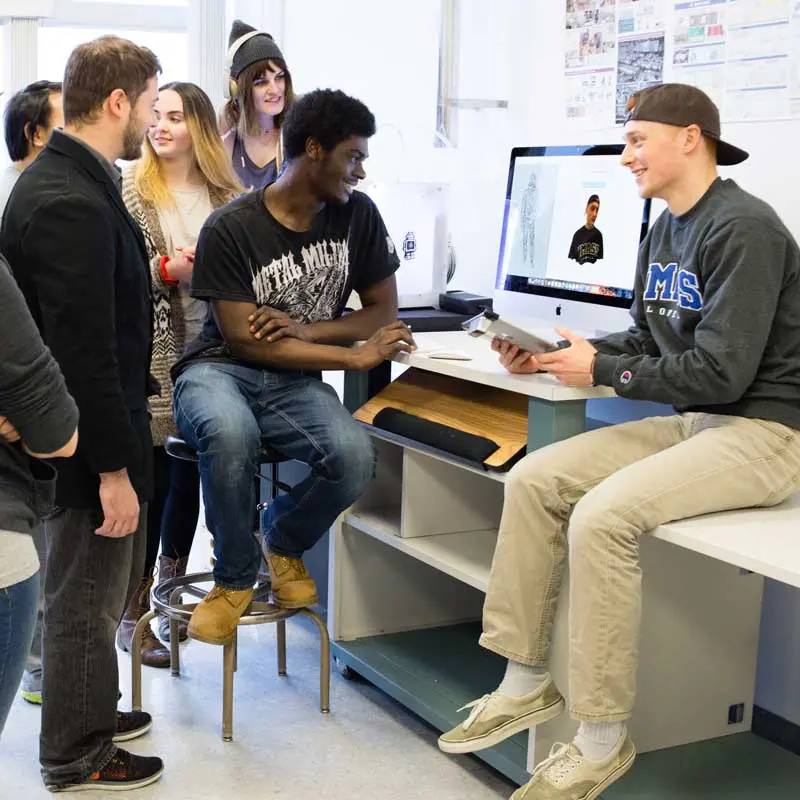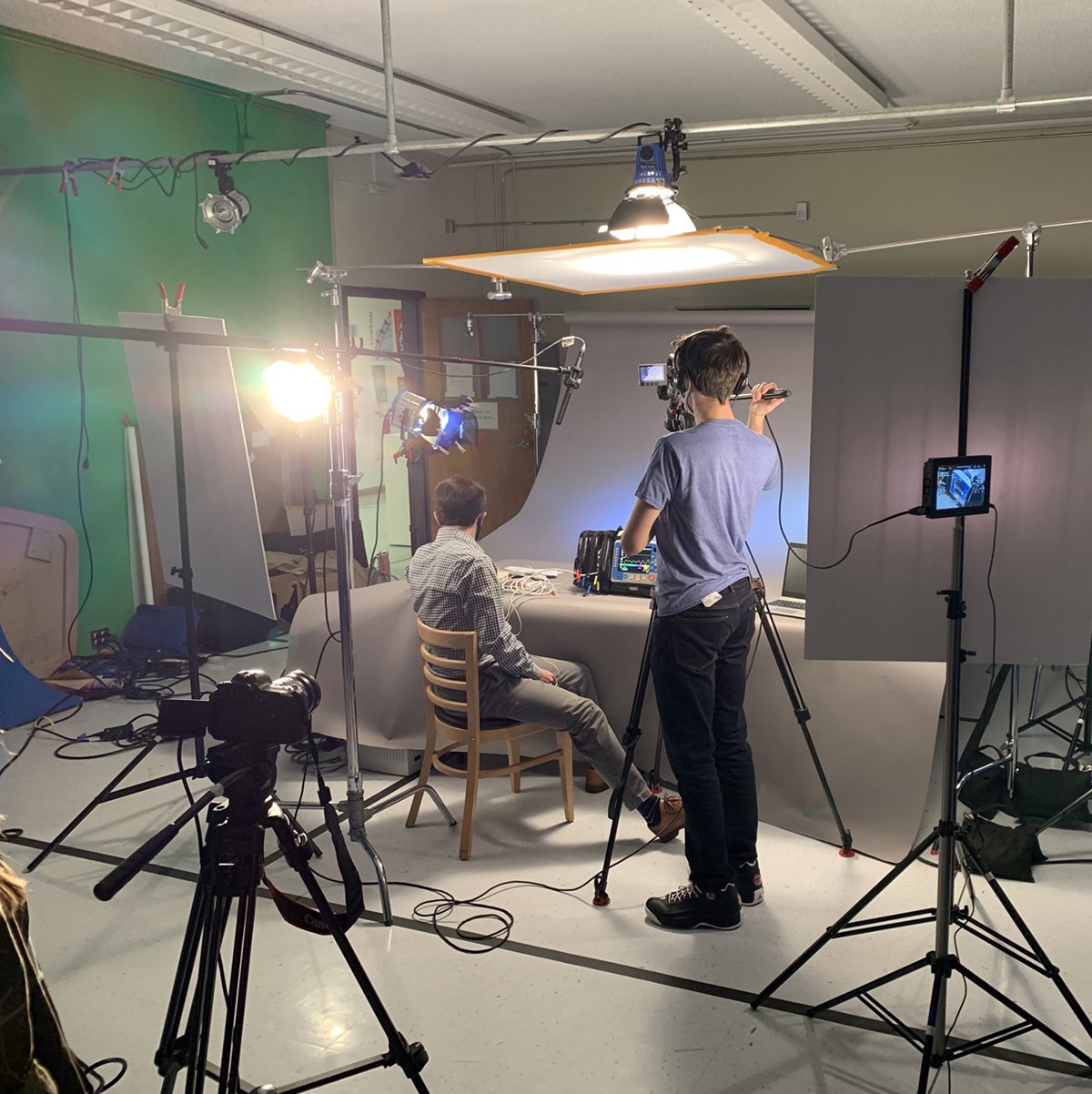What courses will you take?
 Image by Cameron Blanchard
Image by Cameron Blanchard
The B.A. in Digital Media at UMass Lowell offers a rigorous curriculum taught by industry experts.
You will gain exposure to media platforms spanning from online multimedia production to TV and filmmaking through courses in video, film, sound production, editing, motion graphics, podcasting, broadcasting and screenwriting.
Courses combine theory and hands-on learning, allowing you to develop a fundamental baseline of knowledge as well as your personal interests in media creation. In the senior year, you will complete a professional capstone portfolio project that meets the requirements of future employers.
Visit the Academic Catalog for a complete course listing.





